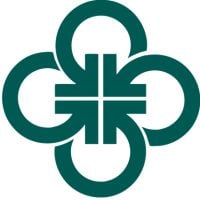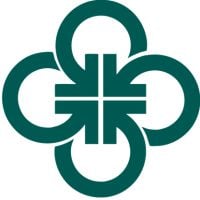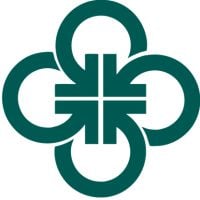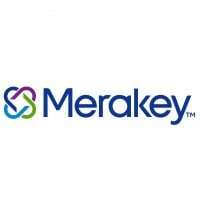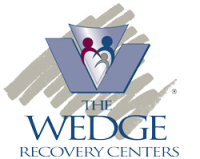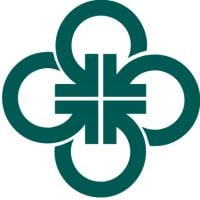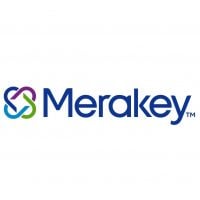Drexel Medicine - The Caring Together Program
Drug Rehab Center in Philadelphia, Pennsylvania
The Caring Together Program at Drexel Medicine is a highly respected SAMHSA-accredited addiction treatment facility providing comprehensive services and specialized therapies for individuals facing substance abuse and dual diagnosis, including detoxification, intensive outpatient care, intervention programs, and aftercare support.
About This Pennsylvania Facility
Drexel Medicine - The Caring Together Program, located in Philadelphia, Pennsylvania, is a private rehab facility dedicated to helping women and their children overcome substance abuse. Established in 1991, this program utilizes a multi-phase, multi-disciplinary approach to treat addiction and any underlying issues.
The Caring Together program recognizes that addiction often stems from or leads to other problems, and addresses these comprehensively through their treatment methods. Their goal is to help individuals start a new life free from drugs and alcohol.
Accredited by the Substance Abuse and Mental Health Services Administration (SAMHSA), this facility offers a range of evidence-based treatment methods and levels of care. These include aftercare support, drug rehab, dual-diagnosis treatment, intensive outpatient programs, intervention services, outpatient programs, and detoxification.
- Specialized programs for women and children
- Comprehensive approach addressing addiction and co-occurring disorders
- Multi-phase treatment tailored to individual needs
- Supportive environment fostering long-term recovery
Drexel Medicine - The Caring Together Program specializes in treating alcoholism, drug addiction, dual diagnosis (co-occurring mental health and substance abuse disorders), and opioid addiction. Their expertise lies in addressing the complex interplay between these issues.
For a woman struggling with alcoholism and depression, Drexel Medicine - The Caring Together Program would provide integrated treatment targeting both conditions simultaneously. Their multi-disciplinary team would develop a personalized plan combining evidence-based therapies, counseling, and support services to address the root causes and promote lasting recovery.
Genders
Ages
Modality
Additional
Accreditations
SAMHSA
Conditions and Issues Treated
The inappropriate use of any drug in Philadelphia, PA is substance abuse. This involves alcohol, medications, and illicit drugs. With a combination of physical and psychiatric therapies, drug addiction is successfully treated at Drexel Medicine - The Caring Together Program. After Detox is complete, individuals follow-up with treatments treating the root cause of the addiction.
Opioid Addiction Treatment supports people recovering from addiction to prescription drugs as well as illegal opioids. This is a hospital-based or residential treatment. Depending upon one’s age, detox without the appropriate medication may be unpleasant or even dangerous–some get body aches, fever, chills, while others may even have seizures.
Opioid treatment involves medically assisted detox, physical and mental support. Most rehabilitations use an array of treatments to ensure overall wellbeing, such as Medication-assisted therapy (MAT) in which one gets behavioral therapy, medicines, and counseling. A client-centered approach can reduce one’s chances of relapse. Therapists at work with the client to figure out environmental and behavioral triggers, giving them the power to change the patterns.
Levels of Care Offered at Drexel Medicine - The Caring Together Program
This center offers a variety of custom treatment tailored to individual recovery. Currently available are Aftercare Support, Detox, Drug Rehab, Dual-Diagnosis, Intensive Outpatient, Intervention, Outpatient, with additional therapies available as listed below.
Detoxification is a reduction in the effects of drugs and alcohol. It can be beneficial for people who have a history of withdrawal, who are at risk for dangerous health concerns, or who are unable to function well in their day-to-day lives due to addiction.
Detoxification is beneficial for:
- People who are unable to overcome addiction without the help of professional care.
- People who are at risk for dangerous health conditions due to withdrawal.
- People who are at risk for overdose or serious health concerns after a relapse.
If you believe that addiction treatment is right for you or a loved one, you can contact your primary care physician, or search for addiction treatment centers in your area. Treatment is beneficial to people who are motivated towards recovery, and who understand the benefits of professional care.
Daily trips to the hospital that provides the treatment include intensive outpatient services (IOP). IOP in Pennsylvania is appropriate for patients in residential recovery facilities that have been diagnosed with addiction. Patients return to their everyday lives gradually, increasing the likeliness of success in treatment.
Outpatient rehabilitation is a treatment that exists if a patient is not checking into Drexel Medicine - The Caring Together Program long term. In addition to helping them recover, the patient attends regular therapy sessions and detox and participates in other therapies. However, this is all primarily done from home. As a follow-up to inpatient treatment, outpatient treatment is usually recommended.
After rehabilitation, it helps people return to their everyday lives. It may also be an alternative to inpatient care in some situations. If they cannot leave their jobs, children, or don’t have the money for inpatient care, people can choose this method. Inpatient therapy, however, is the best method and most suggested level of treatment offered by Drexel Medicine - The Caring Together Program in recovering from addiction.
Intervention services are designed to help loved ones of an individual suffering from alcohol or drug addiction. They aim to help the individual realize that their behavior is causing damage, and external help is crucial to handle their problem efficiently.
Treatment for substance abuse does not cease after an individual successfully completes a detox or rehabilitation program. A vital follow-up treatment service is aftercare support provided to individuals at Drexel Medicine - The Caring Together Program in Pennsylvania after they attain initial sobriety.
Aftercare support often takes the following forms: 12-Step Programs, Outpatient Treatment Programs, and Support Groups. The most effective aftercare programs are tailored to meet an individual’s specific needs and circumstances.
Therapies & Programs
Addiction and alcoholism always harm an addict’s relationships with others and none more than relationships with a spouse or partner. Couples therapy is an essential part of restoring trust and good communication to intimate relationships harmed by addiction. Couples therapy by Drexel Medicine - The Caring Together Program helps repair the damage done to these important relationships.
Recovery can be more effective if the entire family’s involved. Family therapy hosted by Drexel Medicine - The Caring Together Program brings in the addict’s family to explore genetic factors. It gives loved ones the tools for dealing with addiction and its underlying mental issues. It is a recommended step in helping addicts adapt to sober living.
Trauma is one of the most common causes of psychological disorders. It’s often found in people with addiction diagnoses. Trauma therapy addresses this by examining the emotions and thoughts people have formed due to past traumas. Traumas are complex but trauma therapy can reduce their ability to contribute to addictive behaviors.
Dialectical Behavioral Therapy is a form of Cognitive Behavioral Therapy. It is designed for those who are prone to self-harm and suicidal behaviors. Drexel Medicine - The Caring Together Program aims to help patients understand the relationship between their thoughts, feeling and behaviors and it gives them the tools to make a change. It is effective for those whose addictions and behaviors stem from extreme mental health issues.
Self-defeating thoughts and habits can limit your possible successes. Some examples of this are procrastination, unhealthy eating and angry outbursts. REBT is a method of specific counseling offered by Drexel Medicine - The Caring Together Program that replaces negative and self-limiting thoughts.
A 12-Step Program is a common method that is used to treat addiction. This format is used for both drug and alcohol treatment. It is extremely popular and successful for large numbers of people and the staff at Drexel Medicine - The Caring Together Program are trained to assist in 12-step management.
Contingency Management (CM), also known as motivational incentives or prize method, is a behavioral therapy type. It is based on the principle that their consequences influence the behaviors of an individual. So, it promotes the desired behavior by giving rewards while discouraging the unwanted behaviors by withholding the rewards or even by giving punishments. One of the expected desired behavior is the absence of drug in a toxicology screen, and the rewards vary from prize or vouchers, to experiences. CM is used for individuals who need therapy for more than 3 months, and it has the advantage of being implemented by family members.
Payment Options Accepted
For specific insurance or payment methods please contact us.
Additional Details
Specifics, location, and helpful extra information.
Philadelphia, Pennsylvania 19144 Phone Number(215) 967-2130 Meta DetailsUpdated April 15, 2024
Staff Verified
Patient Reviews
There are no reviews yet. Be the first one to write one.
Philadelphia, Pennsylvania Addiction Information
Pennsylvania ranks 14th in the nation for drug-related deaths. More than 10% of all deaths in Pennsylvania have been related to drugs and alcohol. 30% of Pennsylvania youth reportedly drink alcohol monthly, with more than 20,000 teenagers having an alcohol problem. The rate of opioid misuse in Pennsylvania is double the national average.
Drug addiction and abuse are a big problem in Philadelphia, Pennsylvania. According to recent statistics, about 73,000 people in Philadelphia struggle with drug addiction. This means that about 7.5% of the population is addicted to drugs. Philadelphia also has one of the highest overdose rates in the country, with about four deaths per 100,000 people. It is important to choose a program that fits the individual's needs and addiction severity.
Treatment in Nearby Cities
- Sunbury, PA (103.5 mi.)
- Easton, PA (46.6 mi.)
- Greenville, PA (289.9 mi.)
- Pittston, PA (96.2 mi.)
- Bolivar, PA (211.8 mi.)
Centers near Drexel Medicine - The Caring Together Program
The facility name, logo and brand are the property and registered trademarks of Drexel Medicine - The Caring Together Program, and are being used for identification and informational purposes only. Use of these names, logos and brands shall not imply endorsement. RehabNow.org is not affiliated with or sponsored by Drexel Medicine - The Caring Together Program.



